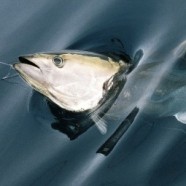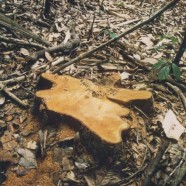Madagascar, Dynastes satanas, spiny tailed lizard, Kaiser’s spotted newt, coral
News in brief:
Bluefin tuna: The International Commission for the Conservation of Atlantic Tunas is not opposed to the listing of bluefin tuna in Appendix 2, and Australia has declared itself favorable to the idea; more to follow…
Madagascar, Dynastes satanas, spiny tailed lizard, Kaiser’s spotted newt, coral
News in brief:
Bluefin tuna: The International Commission for the Conservation of Atlantic Tunas is not opposed to the listing of bluefin tuna in Appendix 2, and Australia has declared itself favorable to the idea; more to follow…
Polar bear: You can continue to purchase polar bear rugs and purses. The proposal of the United States to list it in Appendix 1 was rejected this morning. The European Union, the largest importer, contributed to this rejection. It was joined by Canada, Norway and Iceland. Polar bears, threatened by pollution in the Arctic, oil spills, ecotourism and the retreating ice shelf, are spending more and more time on land to find food; they are therefore more and more exposed to hunting. This icon of global warming was cut down in Qatar due to roadblocks of haggling and inertia. The European Union, as always talkative, “doesn’t want to isolate the case of the polar bear from an ambitious policy against global warming.”
Bluefin tuna and sharks
Convention on International Trade in Endangered Species of Wild Fauna and Flora
CITES 2010 – Doha
Press release n°2
News in brief:
For a French ecologist who is accustomed to hydrocarbon and Volatile Organic Compounds odours, depending on Doha weather conditions, resembles both Fos-sur-Mer and Le Havre. The city is often covered by a smog of Arabian light oil and from the CITES conference centre, super-tankers can be seen crossing dhows made out of mangrove forest wood. The Israeli delegates are protected under tight security measures. That CITES (Convention on International Trade in Endangered Species of Wild Fauna and Flora) in spite of diplomatic embargos permits for Israeli scientists and Arab countries to try to insure the survival of the ornate spiny-tailed lizard by listing it under appendix I is to the credit of the convention. Its range state residual intersects Saudi Arabia, Egypt, Yemen and Israel. In Doha, WWF and the Union European are global warming sceptics; they refuse the inclusion of the Polar Bear to appendix I.
Rosewood tree, African elephant, polar bear and Mariana mallard
The 15th meeting of the Conference of the Parties of CITES, Convention on International Trade in Endangered Species of Wild Fauna and Flora will take place in Doha, Qatar, from the 13th to 25th of March 2010. As with every precedent session since 1989, Robin des Bois will attend.
Currently at CITES there are 175 Parties. Decisions are based on a majority vote of 2/3. Appendix I bans international trade, Appendix II regulates trade and Appendix III is linked to an individual Party decision who asks other CITES Parties for assistance in controlling the trade. Robin des Bois’s summary of the previous CITES session is available on line at the following link (pdf in French).
Rosewood tree, African elephant, polar bear and Mariana mallard
The 15th meeting of the Conference of the Parties of CITES, Convention on International Trade in Endangered Species of Wild Fauna and Flora will take place in Doha, Qatar, from the 13th to 25th of March 2010. As with every precedent session since 1989, Robin des Bois will attend.
Brazilian rosewood, rosewood tree (Aniba rosaeodora Ducke):
Chanel uses Brazilian rosewood an essential oil in their perfume n°5, in 1997 a controversy arose around this subject between the perfumery and Robin des Bois. This controversy was closed by a mutual accord on the necessity to protect Brazilian rosewood, notably via controlling international trade, by including the species on Appendix II of CITES and with plantation trials in French Guiana. Currently, essential oils of rosewood are on the market, for the most part they are made out of chemical substances but they could contain traces of the natural essence. The market of “organic farming” certificated oils used in aromatherapy claims Brazilian rosewood to have anti-depressing and aphrodisiac properties. The principal range state Brazil is proposing the inclusion of Brazilian rosewood in Appendix II. All of the French perfumeries are in favour of this proposal. More than 10 years after the start of Robin des Bois’ campaign, the time it takes for diplomacy, this proposal is an important issue for the Robin des Bois association. The battle is far from over as the Parties who profit from the wood industry are generally reluctant about including a tree in appendixes I or II. Concerning this species, clairvoyance by the Brazilians should be acknowledged.











